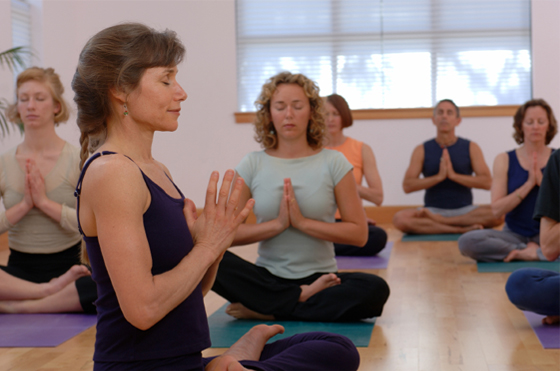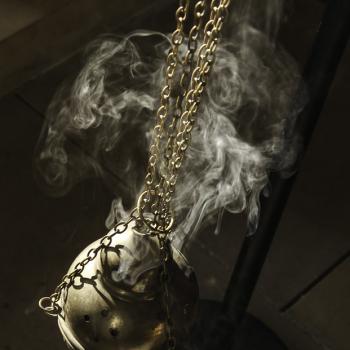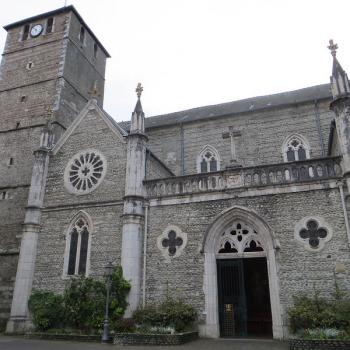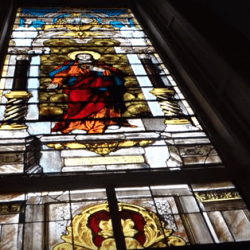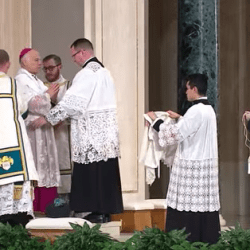An astute observation from Elizabeth Scalia:
Out of curiosity, I recently visited a yoga class with a friend. It was held in a simple, unadorned room. Outside of it, there was a great deal of socializing and chatting, but once people entered the room, all talking ceased. People moved carefully, so as not to disturb others who, having placed their mats on the floor, were sitting or kneeling in postures that suggested recollection. This oasis of calm remained until the instructor arrived, and then—silent, still, but for the teacher’s voice—the class began to move through their forms: forty-five to fifty minutes of focus, silence, and shared striving.
At class’ end, the students bowed respectfully to each other, and made their exit, and in the lobby the chatter started up again—friendly, hospitable talk, some encouragement; someone complimented my friend on something she’d improved. Amid the “see you next time’s” it occurred to me that this little class was successfully “being community”—the goal of so many Catholic parishes—but without giving up its reverences.
I wonder if a corollary exists between Catholics surrendering silence and sacred sensibility, for the sake of socialization, and their exodus from her masses. Our noisy, cynical days have placed silence, consideration, and fixed-focus at a premium; they now seem like rare and remarkable, almost otherworldly respites. If people cannot find a little of that at mass—if they cannot identify something large and “less ordinary” within a celebration at which Christ himself is in attendance–they will seek out a facsimile where they can find it.
Check out the rest. I think she’s on to something.
UPDATE: Someone else who’s on to something is Mike Hayes:
The quietest place I know most of the time: The Bank. Very little is said and almost no noise is present besides the whir of the money sorting machine and the printing of receipts. There’s little small talk–people need to concentrate on their transactions which are too complicated to use an ATM machine for in these cases.
That says a lot about silence’s value in our society and for what purpose does silence serve?
Silence needs to be engendered and people will find a way to do it because they can not do anything else. God calls them to worship.
What I think Scalia is missing is how a parish staff can engender well that quiet culture amongst a society mostly unfamiliar with both the need for silence and the former church landscape of which she describes. We shouldn’t assume that people know to be quiet, even out of respect for the fact that others might be praying. Rather, people need to be reminded that they are always in God’s presence, always being called forth by God into relationship–and more importantly, we’re being called into this relationship as not mere individuals haphazardly gathered on Sunday, but we’re called to see God in the community around us. We’re called to relationship not merely in the vertical “God and us” way (important to be sure) but also we’re here finding that connection to God around others, called to others to be Christ and to help them find Christ in the center of this church–not merely the center of their individual hearts. We’re called to be one heart beating in union with one another in the silence just as a much as we’re called to hear our own heartbeat and know that God is with us and is even closer than our very life pulse.
But nonetheless, Scalia’s take reveals that in order to be called to community we first have to be called into God’s presence—to be aware that this is a time like no other.
Another person ruminating on Catholics and community: Stephen Greydanus:
We’ve all heard that “the family that prays together stays together.” Apparently something similar applies to groups of religious friends as well: Friends who worship regularly together promote each other’s wellbeing like nothing else.
All of this raises concerns about social patterns in American Catholic churches today.
Read more to find out why.

